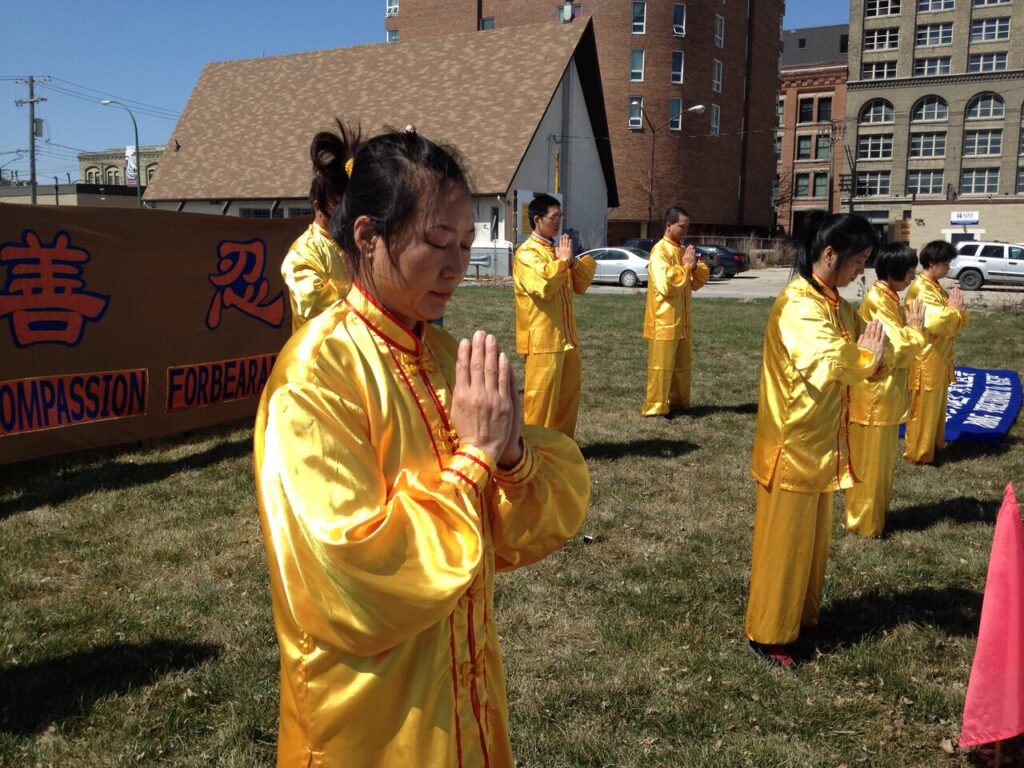Falun Gong, also known as Falun Dafa, is a spiritual practice that emerged from China in the early 1990s, introduced by its founder, Li Hongzhi. It combines meditation, gentle exercises, and a moral philosophy centered on the principles of Truthfulness, Compassion, and Forbearance.
Meaning of Truthfulness
Truthfulness is the first practice aspect of Falun Gong philosophy. It is one of three central principles that, along with Compassion and Forbearance, form the foundation on which practitioners build a moral and behavioral framework in their lives. The Principle of Truthfulness is not limited to being truthful in speech or avoiding lying. Rather, it represents a deep commitment to living in accordance with truth, understanding the true nature of existence, and demonstrating sincerity in every thought, word, and action.
The Essence of Truthfulness in Falun Gong
Truthfulness, in the context of Falun Gong, goes beyond the mere act of not lying. It encompasses authenticity, sincerity, and honesty with oneself and others. It is about aligning one’s thoughts and actions with the principle of truth, striving for a life that reflects integrity and authenticity. Practitioners are encouraged to live in harmony with this principle, which serves as a guiding light in their personal development and interactions with the world.
Benefits of Practicing Truthfulness
Personal Growth and Inner Peace
One of the most profound benefits of practicing Truthfulness is the contribution to personal growth and the cultivation of inner peace. When individuals commit to being truthful, they embark on a path of self-reflection and self-improvement. This process involves identifying and acknowledging one’s flaws and working diligently to overcome them. As practitioners strive to live in accordance with Truthfulness, they often experience a sense of liberation and peace, arising from the congruence between their inner values and outward actions.
Improved Relationships
Truthfulness fosters trust and openness in relationships. Practitioners of Falun Gong who adhere to this principle often find that their relationships with others become more genuine and meaningful. When people communicate with honesty and sincerity, misunderstandings and conflicts are minimized, paving the way for stronger, more harmonious connections with family, friends, and colleagues.
Moral Upliftment and Societal Benefits
The practice of Truthfulness has implications that extend beyond the individual to society at large. In a world where deceit and dishonesty are prevalent, the steadfast adherence to truth by Falun Gong practitioners serves as a beacon of integrity. This can inspire others to reflect on their own values and behaviors, potentially leading to a broader societal shift towards greater honesty and ethical conduct.
Health and Well-being
Although the primary focus of Falun Gong is on spiritual and moral improvement, many practitioners have reported physical and mental health benefits from adhering to its principles, including Truthfulness. Living an authentic life, free from the turmoil of deceit, can reduce stress, anxiety, and other emotional disturbances, contributing to overall well-being.
Meaning of Compassion
Compassion, as one of the core tenets of Falun Gong, stands at the heart of its moral philosophy, alongside Truthfulness and Forbearance. The practice and cultivation of Compassion within this context are deeply intertwined with the overarching goals of personal improvement and the attainment of higher spiritual wisdom.
Compassion, in Falun Gong, is not merely an emotional response but a profound understanding and a way of being that emphasizes empathy, selflessness, and a deep-seated desire to alleviate the suffering of others.
The Essence of Compassion in Falun Gong
Compassion in Falun Gong transcends the conventional notion of feeling pity or concern for the misfortunes of others. It is about cultivating a heart filled with genuine love, kindness, and a willingness to help others unconditionally. This principle encourages practitioners to look beyond their own needs and desires, to empathize with others, and to act in ways that contribute positively to their well-being. Compassion is seen as a manifestation of one’s inner purity and a reflection of one’s true self, which is fundamentally good and benevolent.
Benefits of Practicing Compassion
Enhanced Personal Growth and Self-Realization
Practicing Compassion facilitates a journey of self-realization and personal growth. As practitioners focus on the well-being of others, they often find that their own spiritual and emotional states are uplifted. This selfless concern for others helps to diminish egoistic tendencies and cultivates a sense of humility and gratitude. Through the practice of Compassion, individuals learn to see beyond superficial differences, recognizing the fundamental interconnectedness and inherent worth of all beings.
Improved Relationships and Social Harmony
Compassion fosters a sense of understanding and tolerance, which are essential for healthy and harmonious relationships. By approaching interactions with empathy and a genuine concern for others’ well-being, practitioners of Falun Gong often experience deeper and more meaningful connections with those around them. This compassionate stance can diffuse tensions, resolve conflicts, and build a foundation of trust and mutual respect, contributing to social harmony and community cohesion.
Positive Impact on Mental and Physical Health
The practice of Compassion has been linked to various mental and physical health benefits. Engaging in compassionate actions and cultivating a compassionate mindset can reduce stress, anxiety, and depression, promoting a sense of inner peace and contentment. Additionally, the positive emotions associated with Compassion can have beneficial effects on one’s physical health, including lower blood pressure and improved immune function.
Contribution to a Better World
On a broader scale, the collective practice of Compassion by Falun Gong practitioners has the potential to contribute to a more altruistic and caring world. In a society where indifference and selfishness often prevail, acts of kindness and compassion serve as powerful catalysts for change, inspiring others to act with empathy and concern for the greater good. Through its emphasis on Compassion, Falun Gong advocates for a world where understanding, altruism, and kindness are valued and practiced widely.
Meaning of Forbearance
Forbearance, or Ren in Chinese, is one of the three central tenets of Falun Gong, alongside Truthfulness and Compassion. It embodies the qualities of patience, tolerance, endurance, and the capacity to face adversity with equanimity.
Forbearance is not about passive endurance or suppression of feelings; rather, it is about cultivating the strength and wisdom to handle life’s challenges with grace and resilience. This principle encourages practitioners to transcend petty grievances, to forgive and to understand, and to maintain inner peace even in the face of provocation or hardship.
The Essence of Forbearance in Falun Gong
Forbearance within the context of Falun Gong is deeply rooted in the cultivation of one’s character and spiritual advancement. It is an active expression of inner strength and self-control, requiring practitioners to confront and transform negative emotions such as anger, jealousy, and resentment. By practicing Forbearance, individuals learn to respond to difficult situations with a calm and balanced mind, viewing challenges as opportunities for personal growth and spiritual elevation.
Benefits of Practicing Forbearance
Enhanced Emotional Stability and Resilience
One of the key benefits of practicing Forbearance is the development of enhanced emotional stability and resilience. Through the cultivation of Forbearance, practitioners learn to navigate life’s ups and downs with a sense of calm and composure. This ability to remain unshaken in the face of adversity contributes to a more stable and peaceful state of mind, reducing susceptibility to stress, anxiety, and depression.
Improved Relationships and Social Harmony
Forbearance plays a crucial role in building and maintaining healthy relationships. It fosters an environment of understanding and forgiveness, allowing individuals to look beyond their immediate reactions and to appreciate the broader context of their interactions with others. By exercising Forbearance, practitioners can resolve conflicts more effectively, enhance mutual respect, and contribute to the overall harmony and cohesion of their communities.
Personal Growth and Spiritual Advancement
The practice of Forbearance is integral to the path of personal and spiritual growth within Falun Gong. It challenges practitioners to transcend their egoistic concerns and to cultivate a higher level of spiritual wisdom. By enduring hardships with grace and maintaining moral integrity in the face of provocations, individuals can achieve significant advancements in their spiritual cultivation, moving closer to the ultimate goal of enlightenment and self-realization.
Contribution to a More Tolerant Society
On a societal level, the widespread practice of Forbearance has the potential to foster a more tolerant, understanding, and peaceful world. In an era marked by polarization and conflict, the ability to exercise patience and tolerance can serve as a powerful antidote to the forces of division and hostility. By embodying the principle of Forbearance, Falun Gong practitioners contribute to the creation of a social fabric that values empathy, respects differences, and promotes peaceful coexistence.
In Falun Gong’s teachings, the principles of Truthfulness-Compassion-Forbearance are not simply abstract virtues admired from afar. They are practical, living guides that shape the daily lives of practitioners, offering paths to personal improvement, spiritual enlightenment, and the betterment of society as a whole. Honesty requires authenticity and integrity, Compassion requires empathy and forgiveness, and Forbearance requires patience and resilience. Together, these principles form a comprehensive framework that not only guides individuals in their personal cultivation but also serves as a beacon for creating a more harmonious world.








